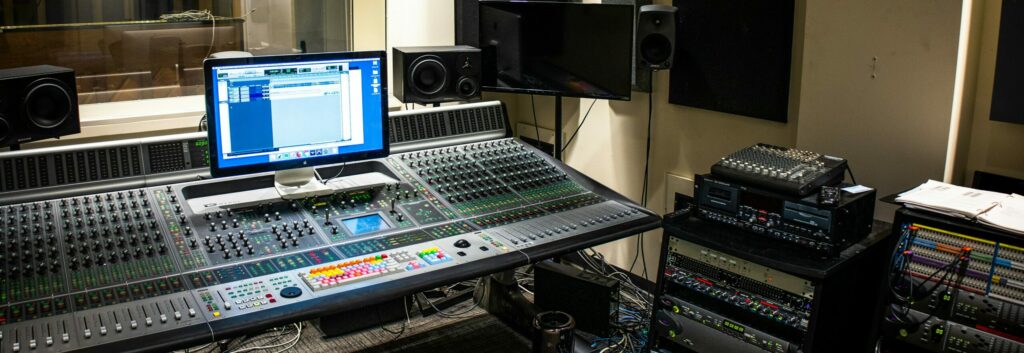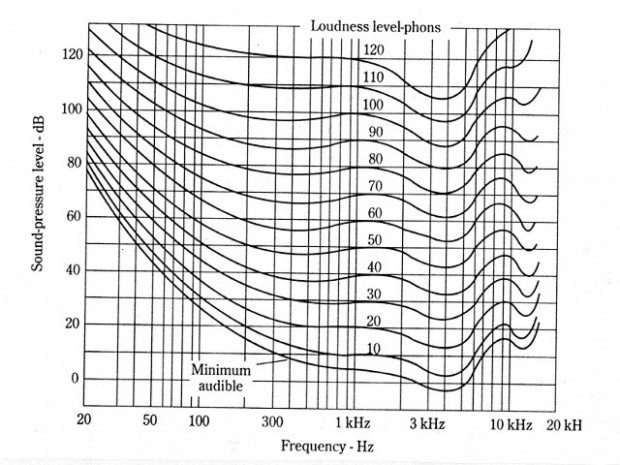Mastering is not just a technical process; it’s an art form that requires a trained ear and a deep understanding of audio dynamics. It serves as the bridge between the creative process of music production and the final listening experience. By investing in mastering, you ensure that your music resonates with listeners, conveying the emotions and nuances intended in your original mix. Ultimately, mastering elevates your tracks, allowing them to compete in a crowded music landscape and ensuring they leave a lasting impact.
What Is Mastering?
Historically, mastering has involved preparing and transferring recorded audio from a source containing the final mix to a data storage device called the master. All copies produced are derived from this master.
Today, mastering refers to the audio process that enhances the sound and balances the mix with EQ, compression, and limiting, among other techniques. These elements provide consistent loudness and sound throughout all the tracks of an album.

So, What Are The Benefits Of Mastering?
Mastering is the crucial final step in music production, refining a mix into a polished, professional-sounding track. While mixing balances individual elements within a song, mastering ensures the track sounds its best across all playback systems, from headphones to car speakers. But what exactly does mastering bring to the table? Let’s explore the key benefits.
Balanced Sound
One of the main goals of mastering is to correct mix balance issues and enhance the overall sound. We want our song to sound good on all devices, such as mobile phones, cars, and computers. This sound can be achieved with excellent spectral balance.
This process usually involves equalization and multi-band compression. MasteringBOX uses «dynamic equalization» to auto-balance the mix and obtain a compensated spectral response suitable for most devices.
Consistency
It is also essential that the individual tracks sound cohesive when played one after another on an album. Are the loudness levels similar? Is there a consistent sound?
If you recorded all the album songs in the same studio, your songs may (or may not) sound more or less similar. However, the loudness will not be the same. It is crucial to minimize the differences between tracks while maintaining the character of each one, which in many cases will require different settings for each song. This loudness is why MasteringBOX has adjustable Loudness and EQ control settings, although you’ll often achieve similar levels and sound from MasteringBOX right out of the box.
Loudness
Yes, loudness is important too. You may have heard about the «loudness war» and all the controversy surrounding it. Mastering can indeed be a double-edged sword if not used properly. But we can’t deny that loudness is one of the goals of mastering. But why is it important?

Human hearing is less sensitive to low and high frequencies, as you can see in the figure above. This low sensitivity means that when we listen to a song at a low volume, we will primarily hear the mid frequencies, and the track will sound poor, lacking punch and warmth. As we raise the volume, we will start hearing the lower and higher frequencies, and it will suddenly sound better, even if the track has not been modified at all. I’m sure you have all experienced this when producing your songs, haven’t you? Now you know the reason.
Mastering uses compression and limiting to achieve loudness without significantly affecting the song’s dynamics. It is essential to find the sweet spot with a good compromise between loudness and dynamics. MasteringBOX will attain an excellent loudness level while preserving the dynamics and sound of the track, but if you don’t like where it is set, you can adjust it with the Loudness Control. You decide what the sweet spot is for you.
Preparation For Distribution
Because mastering is the final production step just before CD replication or when you publish your music online, you will need to output to the final audio format to achieve the best quality. Depending on your needs, you may require different audio formats.
In the case of CD replication, this means converting to 16 bit/44.1 kHz audio through re-sampling and/or dithering, depending on the original audio source. For web or digital distribution, mastering can be optimized for conversion to MP3 and include the required metadata.
Conclusion
So, does your track or album need mastering? Yes, it does, always. It will sound better and more consistent, and here at MasteringBOX, you can do it for FREE. Check how to prepare your track for mastering for more info.
Sobre el autor

Dídac
CEO y Fundador de MasteringBOXDídac es un ingeniero de audio profesional, productor musical e ingeniero de software. También es el fundador de MasteringBOX y el autor de muchos de los artículos del blog.
Deja un comentario
Inicia sesión para comentar


